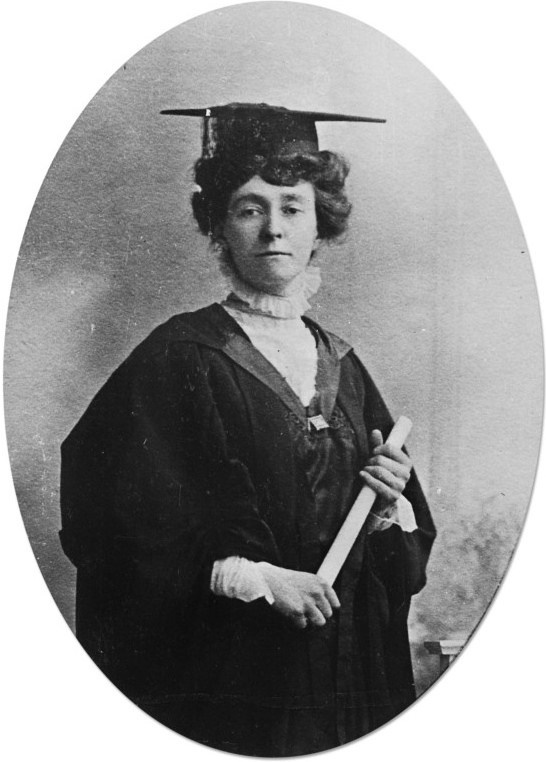Emily Wilding Davison (1872 – 1913)

On 5th December 1912 at Aberdeen Police Court, Emily Wilding Davison was sentenced to 10 days imprisonment. She had attacked a Baptist minister with a horsewhip, mistaking him for David Lloyd George, the Chancellor of the Exchequer. Following a four-day hunger strike she was released early; it was the 7th time she had been on hunger strike, and the 49th time she had been force fed.
Emily was born at Roxburgh House, Greenwich, on 11th October 1872 to Charles Davison, a retired merchant, and Margaret Caisley. Educated at home until 11 years old, she worked hard as a live-in governess to save money for her education at Oxford, and later the University of London.
By 1909 she had dedicated herself full-time to campaigning for the women's vote. She was arrested many times, including one occasion for 'assaulting the police in execution of their duty' in March 1909 as part of a deputation of 21 women who marched to see Prime Minister Asquith and was sentenced to a month in prison. This was followed by a two month sentence for interrupting a public meeting by David Lloyd George (Emily was released after five and a half days' hunger strike) and a week's hard labour for throwing stones at Sir Walter Runciman, Cabinet Minister. She later said the experience 'will haunt me with its horror all my life, and it is almost indescribable... The torture was barbaric.'
Emily avoided being recorded in the 1911 census on 2nd April when she hid in a cupboard in the chapel of the Palace of Westminster. She was discovered but not arrested, and was subsequently recorded twice as both Clerk of Works at the House of Commons completed a census form to include her, as did her landlady at her lodgings. The Clerk of Works recorded that she was ‘[f]ound hiding in crypt of Westminster Hall’ and her occupation as a ‘School Teacher’, while her landlady recorded her as a ‘Political Secretary’. While Emily was discovered, this was doubtless a stunt to publicise women’s suffrage as either she was found and recorded as being in the Houses of Parliament, or she remained hidden and could boast of being there.
On 4th June 1913 Davison attended the Derby. As the King's horse, Anmer, came past her she ran to grab the reins; hit by the horse she fell unconscious and died on 8th June. Found in her effects were two flags, the return stub of her railway ticket to London, her race card and a ticket to a suffragette dance later that day.
Emily's case can be examined in a file held by National Records of Scotland.
